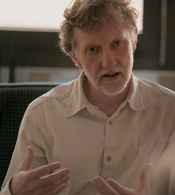EMBL’s fourth Director-General, Dr Iain Mattaj, takes office

Dr. Iain Mattaj today took over the leadership of the European Molecular Biology Laboratory [EMBL], a prominent basic research and training institute with laboratories in France, Germany, Italy and the UK.
“The pace of progress in the life sciences is remarkable. I see my job as ensuring that EMBL matches this pace to stay at the forefront of molecular biology research,” says Dr. Mattaj.
Mattaj has a unique advantage over his predecessors – he knows the laboratory very well. He has been at EMBL for over 20 years and has been highly involved in scientific planning at the lab since becoming Scientific Director in 1999.
What will be the most significant challenges for the new Director-General?
“One of my first challenges is to update EMBL’s facilities and modernize the infrastructure of the lab. Turning our ambitious scientific plans into reality will depend on addressing this challenge now,” he says.
Mattaj’s plans include not only maintaining a leadership position in molecular biology research, but also strengthening EMBL in all areas of its missions, such as providing services, developing new instrumentation, commercializing new technologies, and training scientists at all levels.
And he already has a head start on addressing these goals – last month the countries that fund EMBL voted to give the laboratory the resources needed to begin renovating the 30-year old facilities at the lab headquarters in Heidelberg. In addition, Germany, who hosts EMBL’s main laboratory, has agreed to fund a new advanced training centre. This new facility will off e r training for scientists and non-scientists [such as teachers] through courses, conferences, visits and sabbaticals.
“I’m very pleased that the member states have approved this extra funding,” says Mattaj. “It’s a vote of confidence in me as well as in the directions established by my predecessor, Prof. Kafatos. It also allows me to focus on what I need to do – developing a new scientific strategy for the lab.”
As for changes in EMBL’s scientific scheme, Mattaj says that the future of molecular biology lies with systems biology, which aims to understand how complete biological systems function, rather than focusing on the isolated pieces. He also knows that EMBL will need the capacity to deal with the enormous amount of data being generated by high throughput experiments in modern research.
To do this, Mattaj will set up organizational structures to encourage biologists to work not only with other biologists, but also with physicists, chemists and mathematicians, in order to build a solid base for systems biology work at EMBL. The lab will also advance its capacities and services in bioinformatics to serve the wider scientific community and to give all EMBL scientists expertise in using computational methods.
Dr. Mattaj will be the fourth Director General in the 31 years since EMBL was founded in 1974. His distinguished predecessors were Sir John Kendrew, Prof. Lennart Philipson, and Prof. Fotis C. Kafatos.



